
December 5
1791 Death: Composer Wolfgang Amadeus Mozart in Vienna at age 35:
Austrians have voiced their upset over a shortlist for a "best Germans" TV show that includes the Salzburg-born composer Wolfgang Amadeus Mozart. Austria's ambassador to Germany, Christian Prosl, has said that because Salzburg is in modern-day Austria, Mozart is Austrian, and has complained over the composer's inclusion in the list.
But the makers of the TV programme, a copy of the BBC series Great Britons, have said that Mozart identified himself as German and is eligible for the series.
Mozart was born in Salzburg in 1756 and died in Vienna in 1791. At the time, German-speakers lived in a loose confederation of states. . . .
A spokeswoman from the Austrian embassy in London told BBC News Online said that Mozart was neither German or Austrian as he came from Salzburg when it was its own city state, but that Austria now claimed him as "Austrian".
Other disputed candidates in the ZDF-made show include the composer Joseph Haydn, who was born in Vienna, and psychoanalyst Sigmund Freud.
He was born in the Moravian town of Pribor, then part of a German league but now in the Czech Republic, but lived most of his life in Vienna before moving to London.
Another controversial candidate is the renaissance scientist Copernicus, the first man to theorise the earth revolved around the sun, who was born in the town of Torun, now part of present-day Poland.
ZDF said there was always likely to be some controversy because Germany's borders had changed so often, and producers were having difficulties suggesting some candidates born outside of Germany's present-day borders.
Unlike the Great Britons shortlist, which was chosen by the public, the shortlist of 300 Germans has mostly been picked by the programme-makers in an effort to prevent Adolf Hitler, himself an Austrian by birth, or other Nazi leaders from being chosen. . . .
Some of the undisputedly-German candidates include the composer Ludwig van Beethoven, scientist Albert Einstein, writer Gunter Grass, tennis player Boris Becker and the supermodel Claudia Schiffer.
The Great Britons programme was won by Britain's wartime leader Winston Churchill. [For further information, click here]
1890 Birth: Fritz Lang: Austrian-American motion picture director:
Born . . . in Vienna, Austria, Lang was raised by his father, Anton, an architect, and his Jewish mother, Paula, who later converted to Catholicism and raised her son in that particular faith. After finishing his primary education, he followed in his father's footsteps and briefly studied architecture at Technische Hochshule, only to make the switch to art at the School of Arts and Crafts in Munich and later the Academie Julien in Paris. Once World War I broke out across Europe, Lang returned to Vienna and volunteered to join the Austrian army. Wounded three times - he lost vision in his right eye - while fighting in Russia and Romania, he was eventually discharged from his service with the rank of lieutenant and not long after, began acting in the Viennese theatre. Lang also ventured into screenwriting, penning "The Wedding in the Eccentric Club" (1917) and "Hilde Warren and Death" (1917), and was soon hired by producer Erich Pommer to write for the German-based production company, Decla. . . .
A dark visionary whose meditations on human loneliness where punctuated by a stark visual style and an obsessive work ethic, Austrian director Fritz Lang made a number of acclaimed silent and talkie films in Germany before fleeing the Nazis to become a noted practitioner of film noir in Hollywood. Lang's often fatalistic worldview was on full display early in his career with the silent epic "Metropolis" (1927), a stunning cinematic achievement that influenced countless science fiction films throughout the decades. With "M" (1931), his first movie with sound, he crafted a dark and disturbing tale that introduced the wider world to actor Peter Lorre. After fleeing the Nazis following "The Testament of Dr. Mabuse" (1933), Lang found his way to Hollywood, where he began a long tenure directing a variety of genres, though ultimately specializing in film noir like "Fury" (1936). He tried his hand at the Western with "The Return of Frank James" (1940) and "Western Union" (1941), both of which proved exceedingly popular with audiences, before returning his focus almost exclusively on noirs like "The Woman in the Window" (1944) and "Scarlet Street" (1945). Following another popular Western, "Rancho Notorious" (1952), starring Marlene Dietrich, Lang directed "The Big Heat" (1953), a classic film noir long considered on of the best ever made in the genre. He made only a few more films for Hollywood before returning to Germany, where he ended his career on a soft note with "The 1000 Eyes of Dr. Mabuse" (1960). Despite living out the remainder of his life in relative quiet, Lang was later championed by a wide swath of filmmakers like Jean-Luc Goddard, Woody Allen and Martin Scorsese for his pioneering vision and profound impact on the art of filmmaking. . . .
He made his way back to Hollywood and lived out the remainder of his life in quiet fashion before passing away at age 85 in his Beverly Hills home on Aug. 2, 1976. As witnessed by the likes of Stanley Kubrick, William Friedkin, George Lucas and David Fincher among many others, Fritz Lang left behind a legacy as a pioneering director who influenced numerous generations of filmmakers. [For further information, click here]
1901 Births: Various:
Werner Heisenberg: German physicist and philosopher who discovered a way to formulate quantum mechanics in terms of matrices (1925). For that discovery, he was awarded the Nobel Prize for Physics for 1932. In 1927 he published his indeterminacy, or uncertainty, principle, upon which he built his philosophy and for which he is best known. He also made important contributions to the theories of the hydrodynamics of turbulence, the atomic nucleus, ferromagnetism, cosmic rays, and elementary particles, and he planned the first post-World War II German nuclear reactor, at Karlsruhe, then in West Germany.
Walt Disney: In Chicago Illinois, to his father Elias Disney, and mother Flora Call Disney:
Walt had very early interests in art, he would often sell drawings to neighbors to make extra money. He pursued his art career, by studying art and photography by going to McKinley High School in Chicago. Walt began to love, and appreciate nature and wildlife, and family and community, which were a large part of agrarian living. Though his father could be quite stern, and often there was little money, Walt was encouraged by his mother, and older brother, Roy to pursue his talents.
During the fall of 1918, Disney attempted to enlist for military service. Rejected because he was under age, only sixteen years old at the time. Instead, Walt joined the Red Cross and was sent overseas to France, where he spent a year driving an ambulance and chauffeuring Red Cross officials. His ambulance was covered from stem to stern, not with stock camouflage, but with Disney cartoons.
Once Walt returned from France, he began to pursue a career in commercial art. He started a small company called Laugh-O-Grams, which eventually fell bankrupt. With his suitcase, and twenty dollars, Walt headed to Hollywood to start anew.
After making a success of his "Alice Comedies," Walt became a recognized Hollywood figure. On July 13, 1925, Walt married one of his first employees, Lillian Bounds, in Lewiston, Idaho. Later on they would be blessed with two daughters, Diane and Sharon .
In 1932, the production entitled Flowers and Trees (the first color cartoon) won Walt the first of his studio's Academy Awards. In 1937, he released The Old Mill, the first short subject to utilize the multi-plane camera technique.
On December 21, 1937, Snow White and the Seven Dwarfs, the first full-length animated musical feature, premiered at the Carthay Theater in Los Angeles. The film produced at the unheard cost of $1,499,000 during the depths of the Depression, the film is still considered one of the great feats and imperishable monuments of the motion picture industry. During the next five years, Walt Disney Studios completed other full-length animated classics such as Pinocchio, Fantasia, Dumbo, and Bambi.
Walt Disney's dream of a clean, and organized amusement park, came true, as Disneyland Park opened in 1955. Walt also became a television pioneer, Disney began television production in 1954, and was among the first to present full-color programming with his Wonderful World of Color in 1961.
Walt Disney is a legend; a folk hero of the 20th century. His worldwide popularity was based upon the ideals which his name represents: imagination, optimism, creation, and self-made success in the American tradition. He brought us closer to the future, while telling us of the past, it is certain, that there will never be such as great a man, as Walt Disney. [For further information, click here]
Hitler a Mickey Mouse fan:
Adolf Hitler was a fan of Mickey Mouse, according to the son of the Fuehrer’s architect Albert Speer. Albert Speer junior said he spent time in the dictator’s Obersalzberg residence watching his collection of Mickey Mouse films while his dad worked on projects such as the Nuremburg Rally and the failed Nazi master-city Germania with Hitler. "Hitler had his own cinema and we would go there and watch his Mickey Mouse films." (Daily Times)
1904 Russo-Japanese War: The Russian Fleet is destroyed by a Japanese sneak attack at Port Arthur.
1912 Countdown to WWI: Italy, Austria and Germany renew the Triple Alliance for six years.
1915 World War I: Siege of British-occupied Kut, Mesopotamia begins: On this day in 1915, Turkish and German forces launch an attack on the British-occupied town of Kut al-Amara on the Tigris River in Mesopotamia, modern-day Iraq. [For further details, Click here.]
1916 World War I: David Lloyd George replaces Herbert Henry Asquith as the British prime minister.
1917 World War I: Leon Trotsky on the ongoing Armistice Negotiations:
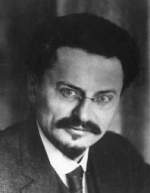
Field-Marshal von Hindenburg and Field-Marshal von Hotzendorf charged Prince Leopold of Bavaria with the negotiations, and he in his turn nominated his Chief of Staff, General Hoffmann. Other delegates received similar authority from their highest Commander in Chief. The enemy delegation was exclusively military. Our delegates opened the conference with a declaration of our peace aims, in view of which an armistice was proposed. The enemy delegates replied that that was a question to be solved by politicians. They said they were soldiers, having powers only to negotiate conditions of an armistice, and could add nothing to the declaration of Foreign Ministers Czernin and von Kuehlmann. Our delegates, taking due note of this evasive declaration, proposed that they should immediately address all the countries involved in the war, including Germany and her allies, and all States not represented at the conference, with a proposal to take part in drawing up an armistice on all fronts.
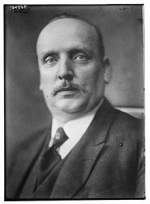
1928 Austria: M.W. Miklas is elected President.
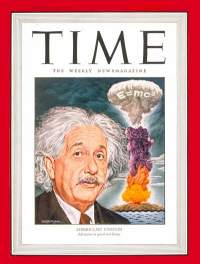
1932 Albert Einstein, German physicist, is granted a US visa.
1933 Various:
Nazi Eugenics: Regulations for the enforcement of the German sterilization law are issued. Persons suffering from hereditary diseases can be exempted from sterilization if they have committed themselves or are already confined in an institution. Physicians objecting on grounds of conscience are not obligated to conduct or assist in sterilizations.
USA: Prohibition ends: The 21st Amendment to the U.S. Constitution is ratified, repealing the 18th Amendment and bringing an end to the era of national prohibition of alcohol in America. At 5:32 p.m. EST, Utah became the 36th state to ratify the amendment, achieving the requisite three-fourths majority of states' approval. Pennsylvania and Ohio had ratified it earlier in the day. [For further details, Click here.]
1934 Italian and Ethiopian troops clash at the Ualual on the disputed Somali-Ethiopian border.
1936 Various:
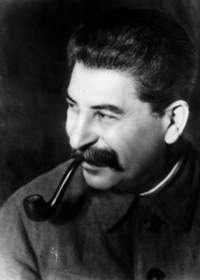
USSR: Constitution of 1936: The Soviet Constitution of 1936, also known as the "Stalin Constitution," was approved by the Eighth Congress of Soviets and became law on December 5, 1936. This Constitution remained in force until 1977 when Leonid Brezhnev based his new "Brezhnev Constitution" on the 1936 document. At Josef Stalin's urging, the Central Committee of the Communist Party had proposed to the Seventh Congress of Soviets in February 1935 that the 1924 Constitution be changed to reflect the profound transformations in Soviet society wrought by the First Five Year Plan (1928-1932). According to the Soviet government, the main goals of the new constitution were to reflect the successful attainment of socialism in the USSR, to institute universal suffrage, and to grant basic civil rights to the entire Soviet population. Former class enemies such as the nobility, the bourgeoisie, priests, and so - called rich peasants or "kulaks" would now be incorporated into Soviet life as equal citizens with full civil rights. The constitution affirmed that "socialist ownership of the instruments and means of production shall constitute the economic foundation of the USSR," though it did allow "the small - scale private economy of individual peasants and artisans based on their personal labor"; private ownership of small plots of land, houses, and domestic property; and inheritance of private property. The document expanded the state's role in providing social welfare by guaranteeing the right to work, free secondary education, and medical aid for all toilers and by furnishing social insurance and paid vacations for industrial and white - collar workers. The constitution also reorganized the Soviet government based on direct elections and reshaped the federal structure of the Soviet Union. [Gale Encyclopedia of Russian History. For further information, click here]
USSR: Armenian SSR, Azerbaijan SSR, Georgian SSR, Kazakh SSR and Kirghiz SSR become constituent republics of the Soviet Union. The New Soviet Constitution in the Union promises universal suffrage, but the Communist Party remains the only legal political party.
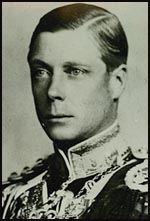
Britain: Edward VIII abdicates, but it is not announced until 10 December. A popular carol this Christmas will be 'Hark the Herald Angels sing, Mrs. Simpson's got our King.'
1937 Various:
The Lindberghs arrive in New York on a holiday visit after a two-year voluntary exile.
Spanish Civil War: Spanish Loyalists (Socialists) begin a last-ditch counteroffensive in the civil war.
1938 Holocaust: The seventh ordinance of the Reich Citizenship Act orders a reduction in pensions for compulsorily retired Jewish officials.
1939 Various:
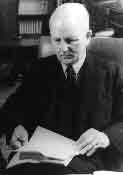
World War II: Memorandum by the State Secretary in the German Foreign Office (Weizsaecker):
Colonel General Keitel telephoned me today on the following matter: Lately there have been repeated wrangles on the boundary between Russia and the Government General, into which the army, too, was drawn. The expulsion of Jews into Russian territory, in particular, did not proceed as smoothly as had apparently been expected. In practice, the procedure was, for example, that at a quiet place in the woods, a thousand Jews were expelled across the Russian border; 15 kilometers away, they came back, with the Russian commander trying to force the German one to readmit the group. As it was a case involving foreign policy, the O. K. W. was not able to issue directives to the Governor General in the matter. Naval Captain B?rkner will get in touch with the desk officer at the Foreign Office. Colonel General Keitel asked me to arrange for a favorable outcome of this interview." "Colonel General Keitel called me on the telephone today to say that the Russian schedule of requests for deliveries of German products was growing more and more voluminous and unreasonable. The negotiations with the Russians would necessarily, therefore, become more and more difficult. The Russians, for example, wanted machine tools for the manufacture of munitions, while the O. K. W. could not spare such machine tools in the present state of the war under any circumstances. The same was true in respect to supplies of air and naval war materiel. I confirmed to Colonel General Keitel that the Foreign Office, too, intended to put a curb on Russian demands. We had not yet quite made up our mind how to do it, whether in Moscow or here through the Russian Ambassador. The Reich Foreign Minister, too, had yet to be informed. In conclusion, Colonel General Keitel said that he was willing, either through General Thomas or by his own participation, to bring about a meeting, if necessary.
Winter War: The Soviet Seventh Army reaches the Mannerheim Line, the main Finnish defenses.
Nazi Germany and the Soviet Union had signed a mutual non-aggression pact, the Molotov-Ribbentrop Pact, on August 23, 1939. The pact also included a secret clause allocating the countries of Eastern Europe between the two signatories. Finland was agreed to be in the Soviet "sphere of interest". The German attack on Poland, September 1st, was followed by a Soviet invasion from the east. In a few weeks they had divided the country between them. In April 1938 or possibly even earlier, the Soviet Union started diplomatic negotiations with Finland, trying to improve the mutual defence against Germany. The Soviet Union's primary concern was that Germany would use Finland as a bridgehead for the attack on Leningrad. More than a year passed without considerable progress and the political situation in Europe worsened. In autumn 1939 after Germany's attack on Poland, the Soviet Union finally demanded that Finland agree to move the border 25 kilometres back from Leningrad, which was at that time only 32 kilometres from Finland. It also demanded that Finland lease the Hanko Peninsula to the USSR for 30 years for the creation of a naval base there. In exchange, the Soviet Union offered to Finland a large part of Karelia (twice as large, but less developed). The Finnish government refused Soviet demands. On November 26 the Soviets staged the Shelling of Mainila, an incident in which Soviet artillery shelled areas near the Russian village of Mainila, then announced that a Finnish artillery attack had killed Soviet troops. The Soviet Union demanded that Finns should apologise for the incident and to move their forces 20-25 km from the border. The Finns denied any responsibility for the attack and refused to give in to the demands. The Soviet Union used it as an excuse to withdraw from the non-aggression pact. On November 30 Soviet forces attacked with 23 divisions, totalling 450,000 men, which quickly reached the Mannerheim Line. A puppet regime was created in the occupied Finnish border town of Terijoki (now Zelenogorsk) on December 1, 1939, under the auspices of the Finnish Democratic Republic and headed by Otto Ville Kuusinen for both diplomatic purposes (it immediately became the only government for Finland that was recognized by the Soviet Union) and for military ones.
Secret Diary of Anti-Hitler Conspirator Ulrich von Hassel:
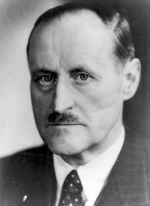
I let Goerdeler know that I was coming to Berlin and would be glad to let him have further information concerning his Bosch business in the North. Hardly had I arrived at the Adlon when he entered my room. Although normally a man of great initiative, he was in utter despair. Incidentally, he often reminds me of Kapp. By his account, all opposition to the German invasion of Western Europe has collapsed on the part of the military leaders; even though Brauchitsch and Halder, just as all others, are convinced that the results will be disastrous. He said that they nevertheless believed they must obey orders. Goering, he informed me, was against it, as he always had been, but could not induce himself to offer any other resistance than a sort of sabotage based on the weather, which is causing widespread flooding in northern and certain Germany. The worst of it is that there is not the slightest cooperation between Brauchitsch and Goering. Goering dislikes Brauchitsch, and he, in turn, as most of the generals, is mistrustful of Goering's character in the highest degree. On the other hand, Brauchitsch, it seems, as many others, is under Hitler's spell. Goerdeler told me that Halder had presented the following reasons for obeying orders: [1] Ludendorff, too, acted in desperation in 1918, without in any way detracting from his historical reputation. One cannot believe one's ears. What has a general's historical reputation got to do with us? In any case this action stained his reputation, and most importantly - it proved wrong! [2] We need a great man. Such a man can only become known as result of his actions, and if he is not there, there is nothing to be done. That is no reason to commit a crime that will precipitate Germany into disaster. For even if we do win, it will necessarily be a Pyrrhic victory, even leaving out of account the internal destruction and demoralization to which a limit finally must be set, and the inconceivable atrocities in Poland, which are covering the German name with disgrace, and for which the army shares the responsibility Keitel believes, however, that if we did invade Holland and Belgium, Italy would loin us. Pariani, who has been sacked, seems to have written him something to that effect. I do not believe it, especially now that the Russians, with our consent, have attacked (November 29, 1939) the Finland we once helped to liberate from them. Now we stand before the world in this brotherhood as a band of robbers. [3] Hitler should, after all, be given this last chance to free the German people from their helotry to English capitalism. It can be seen what an effect propaganda has had on the unsuspecting Germans. Now they are supposed to be practical politicians (Realpolitiker), because they were too emotional as politicians (Gefuehlspolitiker) before. Just in the same way as the officer who left the army in 1918 became a businessman, and, although up till then he had never misappropriated as much as a pin, felt obliged to practice deception. So we now think that practical politics means that we are to set ourselves above all obligations and principles, not noticing that in doing so we are cutting the ground from under our own feet. [4] When one is face to face with the enemy one cannot revolt. In the age of total warfare it is not the army that is face to face with the enemy, but the whole nation, and the question is whether it is to perish or not. [5] The atmosphere is not yet right. Incidentally it is interesting that the leaders of the army always take this line of argument. There is some truth in this. But can we wait for it when the whole thing is at stake? Naturally, it would be better in theory to wait a little, but in practice it is impossible. [6] They are not sure of the young officers. That may to some extent be true, but if the generals are in agreement and speak in the right language, the army and the people will fall into line. The question I discussed with Goerdeler, then in the evening with Wilmowsky, is (1) whether something can still be done to influence the generals. (2) How, without prejudicing Germany's tactical position, the generals could be given a measure of assurance that, now, we could still bring about a reasonable peace, but not after the invasion. Goerdeler was, as I have said, rather pessimistic. It seems that Hitler addressed the generals (Thursday, November 25) with wild, lawyer-like eloquence for three full hours. This impressed the harmless soldiers, but the more intelligent among them gained the impression of a raging Ghengis Khan. Hitler said, in so many words, that humanity was an invention of the 19th Century. Neutrality, he said, was nothing, and if he were to meet his ruin in the enterprise, Germany would have to accompany him into the abyss.
1941 Various:
Countdown to Infamy: The US aircraft carrier Lexington and 5 heavy cruisers get underway from Pearl Harbor.
From the diary of Count Galeazzo Ciano, Foreign Minister of Italy:
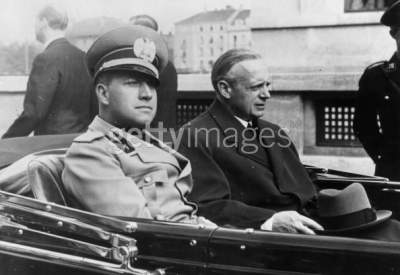
A night interrupted by Ribbentrop's restlessness. After delaying 2 days, now he cannot wait a minute to answer the Japanese; and at three in the morning he sent Mackensen to my house to submit a plan for a triple agreement relative to Japanese intervention and the pledge not to make a separate peace. He wanted me to awaken the Duce, but I did not do so, and the latter was very glad I had not.
Rome to Tokyo:
Accompanied by ARDO I had an interview with Foreign Minister CIANO on the 5th at his request. CIANO showed me the Italian text of the draft of a Three-Power Pact to which GERMANY and ITALY have agreed. BERLIN will have telegraphed this to you, I imagine, regarding participation in the war and not making an independent armistice or independent peace. He said that if the Japanese would agree to this it could be signed at any time. The procedure could be arranged by conversations between BERLIN and TOKYO and then all parties could sign. Repeated by telegram to BERLIN.
Washington to Tokyo:
From Councilor of Embassy Iguchi to the Chief of the Communication Section: We have completed destruction of codes, but since the US-Japanese negotiations are still continuing I request your approval of our desire to delay for a while yet the destruction of the one code machine.
Barbarossa: Hitler abandons the attack on Moscow. Zhukov begins a counterattack, utilizing Siberian troops no longer needed against Japan since the April Neutrality Pact with Japan. (Clark II)
1942 Various: Church and Reich: Weizsaecker reports to the Foreign Ministry that he has informed Papal Nuncio Orsenigo that the Vatican has so far conducted itself "very cleverly" concerning the "rumors" of mass shootings and deportations of the Jews. The Nuncio "pointed out that he had not really touched this topic and that he had no desire to touch it."
Holocaust: The first Jews are transported to Chelmno (Kulmhof) extermination camp.
1943 Various:
World War II: Monte Camino is the site of heavy action as both sides fight for possession of the summit.
Church and Reich: Catholic Provost Bernhard Lichtenberg dies while in transport to Dachau concentration camp. He had been seized by the Gestapo immediately after his release from prison in October.

Church and Reich: German theologian and Nazi martyr Dietrich Bonhoeffer writes in a letter from his concentration camp: 'It is only when one loves life and the earth so much that without them everything seems to be over that one may believe in the resurrection and a new world'.
Netherlands: German troops liberate all the silver coins in Utrecht.
World War II Churchill to General Scobie (Athens):
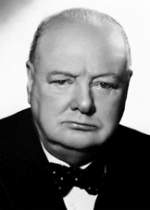
I have given instructions to General Wilson to make sure that all forces are left with you and all possible reinforcements are sent to you. 2. You are responsible for maintaining order in Athens and for neutralizing or destroying all E.A.M.-E.L.A.S. bands approaching the city. You may make any regulations you like for strict control of the streets or for the rounding up of any number of truculent persons. Naturally E.L.A.S. will try to put women and children in the van where shooting may occur. You must be clever about this and avoid mistakes. But do not hesitate to fire at any armed male in Athens who assails the British authority of some Greek Government, and Papandreou is being told be Lepper to stop and help. Do not however hesitate to act as if you were in a conquered city where a local rebellion is in progress. 3. With regard to E.L.A.S. approaching from the outside, you should surely be able with your armor to give some of these a lesson which will make others unlikely to try. You may count upon my support in all reasonable and sensible action taken on this basis. We have to hold and dominate Athens. It would be a great thing for you to succeed in this without bloodshed if possible, but also bloodshed if necessary.
World War II Churchill to Ambassador Leeper (Athens):
This is no time to dabble in Greek politics or to imagine that Greek politicians of varying shades can affect the situation. You should not worry about Greek Government compositions. The matter is one of life or death. 2. You must urge Papandreou to stand to his duty, and assure him that he will be supported by all of our forces if he does so. The day has long since passed when any particular group of Greek politicians can influence this mob rising. His only chance is to come through with us. 3. I have put the whole question of the defense of Athens and the maintenance of law and order in the hands of General Scobie, and have assured him that he will be supported in the use of whatever force is necessary. Henceforth you and Papandreou will conform to his directions in all matters affecting public order and security. You should both support Scobie in every possible way, and you should suggest to him any means that occur to you of making his action more vigorous and decisive.
Stettinius's US State Department Press Release:
The Department of State has received a number of inquires from correspondents in regard to the position of this Government concerning the recent cabinet crisis in Italy. The position of this Government has been consistently that the composition of the Italian Government is purely an Italian affair except in the case of appointments where important military factors are concerned. This Government has not in any way intimated to the Italian Government that there would be any opposition on its part to Count Sforza. Since Italy is an area of combined responsibility, we have affirmed to both the British and Italian Governments that we expect the Italians to work out their problems of government along democratic lines without influence from outside. This policy would apply to an even more pronounced degree with regard to governments of the United Nations in their liberated territories.
World War II Churchill to Stalin:
Your telegram about de Gaulle's visit and the two questions he will raise. We have no objection whatever to a Franco-Soviet Pact of Mutual Assistance similar to the Anglo-Soviet Pact. On the contrary, His Majesty's Government consider it desirable and an additional link between us all. Indeed, it also occurs to us that it might be best of all if we were to conclude a tripartite treaty between the three of us which would embody our existing Anglo-Soviet Treaty, with any improvements. In this way the obligations of each one of us would be identical and linked together. Please let me know if this idea appeals to you, as I hope it may. 2. The question of changing the eastern frontier of France to the left bank of the Rhine, or alternatively of forming a Rhenish-Westphalian province under international control, together with other alternatives, ought to await settlement at the peace table. There is however no reason why when three heads of governments meet we should not come much closer to conclusions about all this than we have done so far. As you have seen, the President does not expect de Gaulle to come to the meeting of the three. I would hope that this could be modified to his coming in later on, when decisions especially affecting France were under discussion . . . . I am keeping the President informed.
1945 Various:
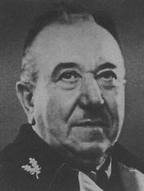
Volkishness: After a brief stay at his old family home in Salzburg, Karl Maria Weisthor (Wiligut) and his housekeeper, Elsa Baltrush, travel to Arolsen, Germany, home of the Baltrush family. The journey proves too much for the old man and he is hospitalized upon arrival.
Nuremberg Tribunal: Continuation of Alderman's Presentation on Czechoslovakia. Maxwell-Fyfe's Presentation on the Violation of Treaties and International Agreements. Griffith-Jones' Presentation of the Case on Aggressive Wars Against Poland and Against the United Kingdom and France.
Aircraft squadron lost in the Bermuda Triangle: At 2:10 p.m., five U.S. Navy Avenger torpedo-bombers comprising Flight 19 take off from the Ft. Lauderdale Naval Air Station in Florida on a routine three-hour training mission. Flight 19 was scheduled to take them due east for 120 miles, north for 73 miles, and then back over a final 120-mile leg that would return them to the naval base. They never returned. [For further information, click here]
1962 Arrest: Walter Rauff: SS Colonel and mass murderer. [For further information, click here]
Edited by Levi Bookin (Copy editor)
levi.bookin@gmail.com
FAIR USE NOTICE: This site may contain copyrighted material the use of which has not always been specifically authorized by the copyright owner. We are making such material available in our efforts to advance understanding of historical, political, human rights, economic, democracy, scientific, environmental, and social justice issues, etc. We believe this constitutes a 'fair use' of any such copyrighted material as provided for in section 107 of the US Copyright Law. In accordance with Title 17 U.S.C. Section 107, the material on this site is distributed without profit to those who have expressed a prior interest in receiving the included information for research and educational purposes. If you wish to use copyrighted material from this site for purposes of your own that go beyond 'fair use', you must obtain permission from the copyright owner.
Please note that the list-owner and the moderators are not responsible for, and do not necessarily approve of, the random ads placed on our pages by our web server. They are, unfortunately, the price one pays for a 'free' website.